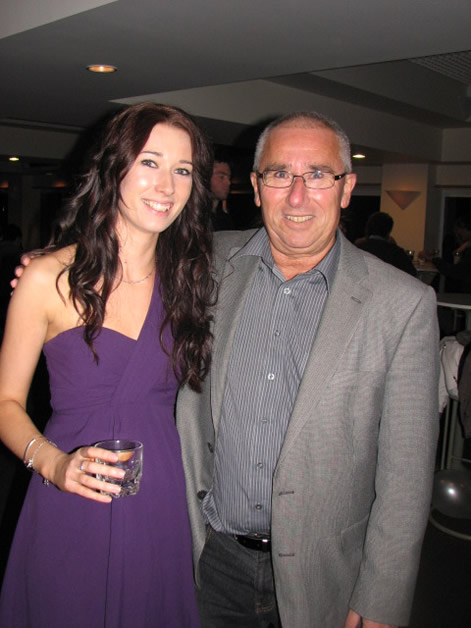When Rebecca Fitzgerald started a double degree in law and science at Canterbury University, it’s unlikely she would have seen herself appearing in a Canadian Discovery Channel documentary mapping the impact craters of flying volcanic rocks.
But that has been her reality since she dropped out of law after her first year (despite very good results), to specialise in science with geology as her major. She has further specialised in volcanology and in April, she took part in the Discovery Channel filming of a University of Canterbury volcanic research project featuring a giant catapult.
The catapult demonstrates how drag varies, as spinning rock and magma fly through the air from a volcano. The Canterbury research group aimed to test the hypothesis that flying volcanic rocks can be avoided if people face, rather than run from an eruption. They have also built a pneumatic canon that has been used to find out how much ‘schrapnel’ is produced when rocks hit different ground surfaces. The canon has also been used to fire rocks at different roofing materials to determine which stands up best to the impact of an eruption.
Twenty-three year old Rebecca (Kaikōura Rūnanga), worked with Dr Ben Kennedy, senior lecturer in Physical Volcanology, Dr Tim Wilson, Geological Sciences and collaborators from the Department of Conservation and GNS Science, to help improve hazard maps on New Zealand volcanoes.
Rebecca’s work started when she mapped all the impact craters that were produced by flying rocks from the August 2012 Tongariro eruption. Following her mapping work, the team had a much better idea of the hazard rocks represent to hikers on the Tongariro Crossing. Her data indicates that on some sections of the walking track, the probability of casualty reached 16 per cent during the 2012 eruption.
The university’s Department of Geological Sciences built the giant catapult and canon to investigate the exact impact of flying rock and magma and the Discovery Channel filmed some of those test runs. The research story was shown on Canada’s Daily Planet programme in May.
Rebecca has just finished her Master’s degree and is looking to begin her PhD studies later this year.
Ultimately, she would like to work with GNS or DOC, or a proactive New Zealand council or iwi, that understands the need to be proactive in understanding the science behind volcanic activity – and more importantly, planning for potential volcanic risk.

Rebecca and her brother, Sam.

Rebecca and her father, Tim Fitzgerald.